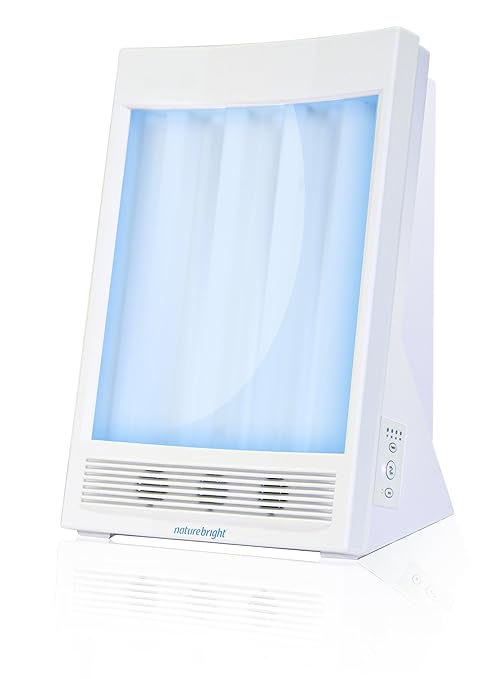Seasonal Affective Disorder
| This page DOES NOT CONSTITUTE medical advice. Consult your physician, etc.. |
Seasonal Affective Disorder (SAD) is a real issue for folks who live/move to areas with long, dark seasons.
Light lamps like this one have been recommended by friends of mine who have moved to the pacific NW:

| This page is a stub. If you can help please create an account and complete it. Remember be bold |
Symptoms
In most cases, seasonal affective disorder symptoms appear during late fall or early winter and go away during the sunnier days of spring and summer. Less commonly, people with the opposite pattern have symptoms that begin in spring or summer. In either case, symptoms may start out mild and become more severe as the season progresses.
Signs and symptoms of SAD may include:
- Feeling depressed most of the day, nearly every day
- Losing interest in activities you once enjoyed
- Having low energy
- Having problems with sleeping
- Experiencing changes in your appetite or weight
- Feeling sluggish or agitated
- Having difficulty concentrating
- Feeling hopeless, worthless or guilty
- Having frequent thoughts of death or suicide
Treatment
As with any mental health problem, there is no one-size-fits-all treatment. Here are a few options to explore with your doctor.
Psychotherapy
Talk therapy can be an invaluable option for those with SAD. A psychotherapist can help you identify patterns in negative thinking and behavior that impact depression, learn positive ways of coping with symptoms, and institute relaxation techniques that can help you restore lost energy.
Light therapy
Phototherapy involves exposing oneself to light via a special box or lamp. This device produces similar effects to natural light, triggering chemicals in your brain that help regulate your mood. This treatment has proven effective especially for those who experience the winter version of SAD. Don’t make an impulse buy on the Internet though, as it’s important to consult with your doctor first. You want to make sure you’ve purchased an effective and safe device.
In the News
- Light Therapy may help Bipolar NPR 11/27/2017